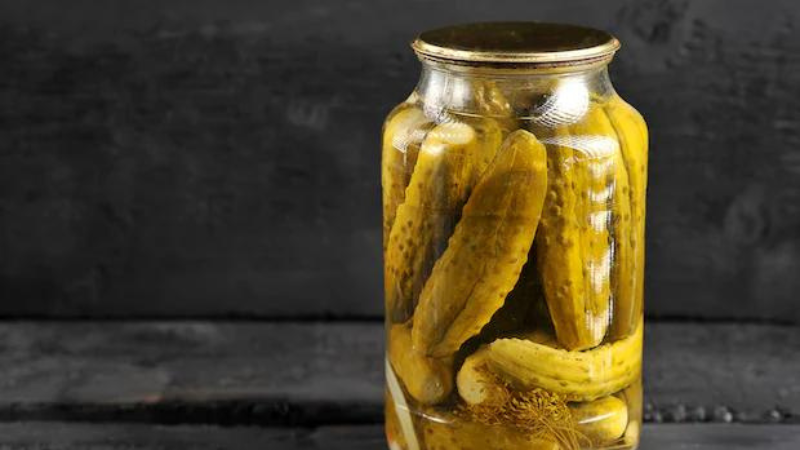When you think of pickles, you likely envision the tangy, crunchy slices that often accompany a delicious sandwich. But what might surprise you is that these humble pickles offer more than just a tasty crunch. In this article, we’re about to embark on a journey to discover the remarkable health benefits of pickles that you may have never considered.
These benefits extend far beyond the satisfying texture and flavor of pickles. From aiding digestion to easing muscle cramps, pickles have a lot to offer for your well-being. So, let’s take a closer look at the lesser-known advantages that these pickled delights bring to the table.
Table of Contents
Toggle7 Different Types of Pickles
Dill Pickles:
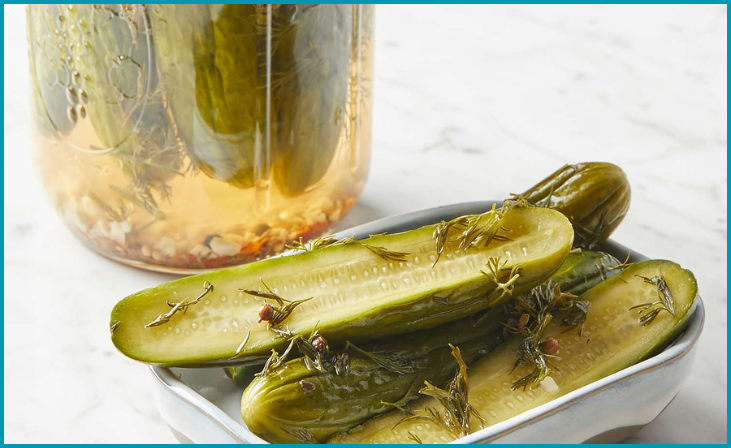
It’s possible that dill pickles are the most well-known variety. They are made by pickling cucumbers in a brine flavored with dill, garlic, and sometimes spices. Dill pickles are known for their crisp texture and tangy, slightly sour taste.
Also Read:- Pickled Vegetables Made In The USA
Bread and Butter Pickles:
These pickles are known for their sweet and tangy flavor. They are typically made from cucumbers, onions, and bell peppers, pickled in a sweet brine made with sugar, vinegar, and spices. Bread and butter pickles are a favorite addition to sandwiches.
Kosher Dill Pickles:
Kosher dill pickles are made using a special pickling process, and they are known for their garlicky and dill-infused flavor. They are a popular choice for deli sandwiches and burgers.
Sweet Pickles:
Sweet pickles come in various forms, such as gherkins and bread and butter pickles. These pickles are made by pickling cucumbers in a sweet brine, often with added sugar and spices, resulting in a sweet and slightly tangy taste.
Bread and Butter Jalapeño Slices:
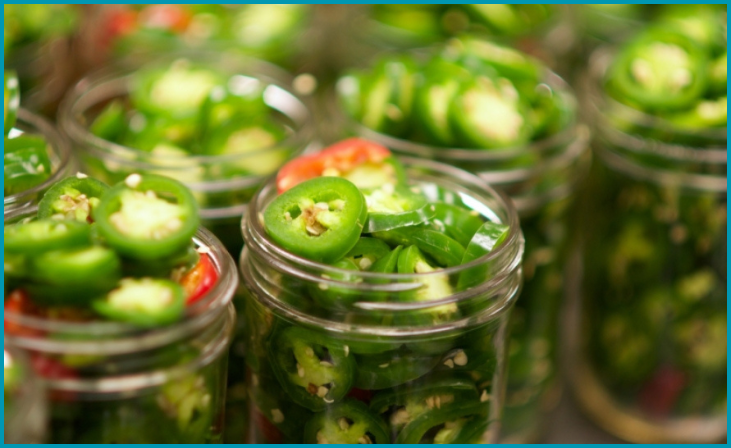
For those who love a bit of heat with their sweet pickles, bread and butter jalapeño slices combine the crunch of pickles with the spiciness of jalapeños. They add a kick to sandwiches and snacks.
Garlic Dill Spears:
These pickles are similar to traditional dill pickles but are known for their extra garlicky flavor. They are often made with whole cucumber spears and plenty of fresh garlic.
Balsamic Pickles:
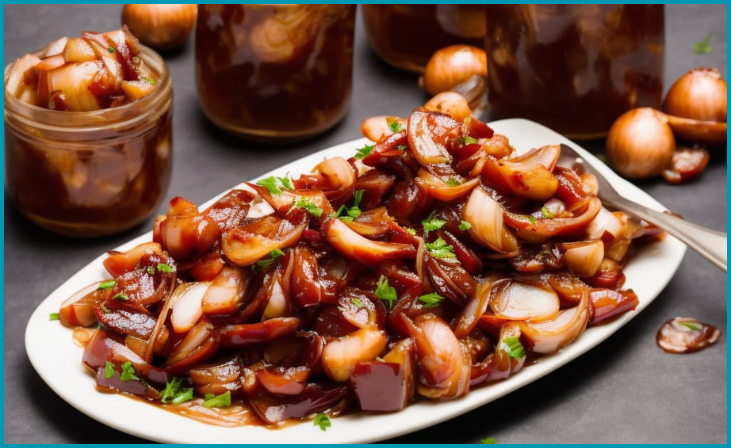
Balsamic pickles are a modern twist on traditional pickles. They are pickled in a brine that includes balsamic vinegar, giving them a sweet and slightly tangy flavor with a unique depth from the vinegar.
10 Best Health Benefits Of Pickles You Never Thought Of
Digestive Aid
When it comes to aiding digestion, pickles are more than just a flavorful condiment. They are a natural source of probiotics, which are beneficial microorganisms that play a crucial role in maintaining a healthy digestive system. The magic happens during the pickle’s fermentation process, where these good bacteria flourish. This, in turn, can work wonders for your digestion by helping to alleviate issues like bloating and maintaining your gut in excellent condition.
Don't just scroll, subscribe!
BuzzTrail's unique web-stories are the cure for boredom you've been waiting for.
Nutrient-Rich
It might come as a surprise, but pickles are a treasure trove of essential nutrients. These tasty treats contain a variety of vitamins, including A, K, and C, as well as essential minerals like calcium, iron, and potassium. These nutrients are not only vital for your overall health and well-being but also contribute to your daily recommended intake of these essential elements.
Low in Calories

For those who are conscious about calorie intake, pickles present a delectable and low-calorie snacking option. They are incredibly light on calories, making them a guilt-free choice. You can savor the delightful crunch of pickles without the worry of adding extra inches to your waistline.
Hydration
Pickles can also play a role in keeping you well-hydrated. They are typically immersed in brine, a solution made of salt and water. This liquid not only adds flavor but also contributes to your daily fluid intake. On hot days when staying hydrated is crucial, pickles can be a refreshing addition to your diet.
Blood Sugar Control
The vinegar used in pickle brine has been linked to improved blood sugar control. It may help in stabilizing blood sugar levels and reducing spikes, making pickles a potential and flavorful inclusion in the diets of individuals managing diabetes.
Reduced Muscle Cramps
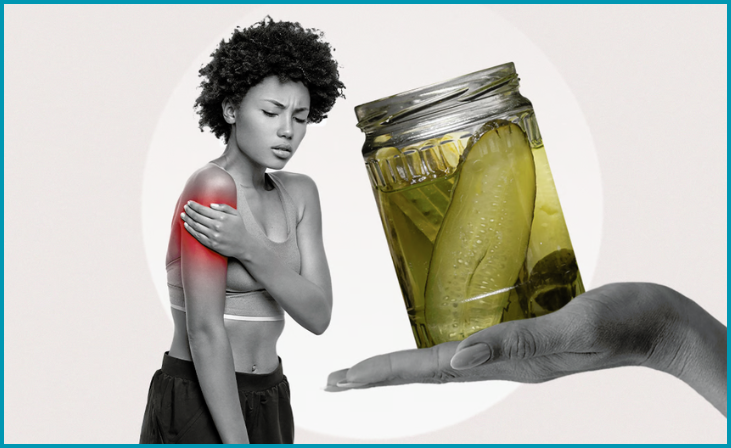
Have you ever experienced painful muscle cramps during or after physical exercise? Pickles could be the solution you’ve been looking for. They are a natural source of essential electrolytes like sodium and potassium. These minerals can assist in preventing and alleviating muscle cramps, making pickles a handy addition for active individuals.
Antioxidant Properties
Certain types of pickles, especially those crafted from dark-colored vegetables like cucumbers, are brimming with antioxidants. These powerful compounds play a crucial role in safeguarding your cells from oxidative stress. Over time, this protection can potentially reduce the risk of chronic diseases and contribute to your long-term health.
Weight Management
Pickles can be a valuable ally in your quest for effective weight management. Their low-calorie content, combined with their high fiber content, can help create a sense of fullness, making it easier to control your appetite and manage your weight effectively.
Improved Skin Health
The vitamins and antioxidants found in pickles offer substantial benefits for your skin health. These elements can help in reducing blemishes, promoting a radiant complexion, and even slowing down the aging process. So, pickles can be a delightful addition to your beauty routine from the inside out.
Also Read:- Best Pickled Products In The USA
Reduced Risk of Osteoporosis
The calcium content in pickles contributes to maintaining strong and healthy bones, potentially reducing the risk of osteoporosis. This condition is characterized by brittle and fragile bones, and by including pickles in your diet, you can help fortify your skeletal system.
Conclusion
Pickles, the humble condiment, have proven themselves to be more than just a tasty snack. They are a surprising source of health benefits, ranging from improved digestion to reduced muscle cramps and even potential weight management. So, the next time you enjoy a pickle, you can relish not only its tangy flavor but also the numerous advantages it offers. Incorporate pickles into your diet, and your body will thank you for it.
FAQs
Are pickles good for weight loss?
Are pickles good for weight loss?
Absolutely! Pickles are low in calories and high in fiber, making them a great addition to a weight loss plan.
Can pickles help with digestion?
Can pickles help with digestion?
Yes, pickles are rich in probiotics that support a healthy digestive system.

